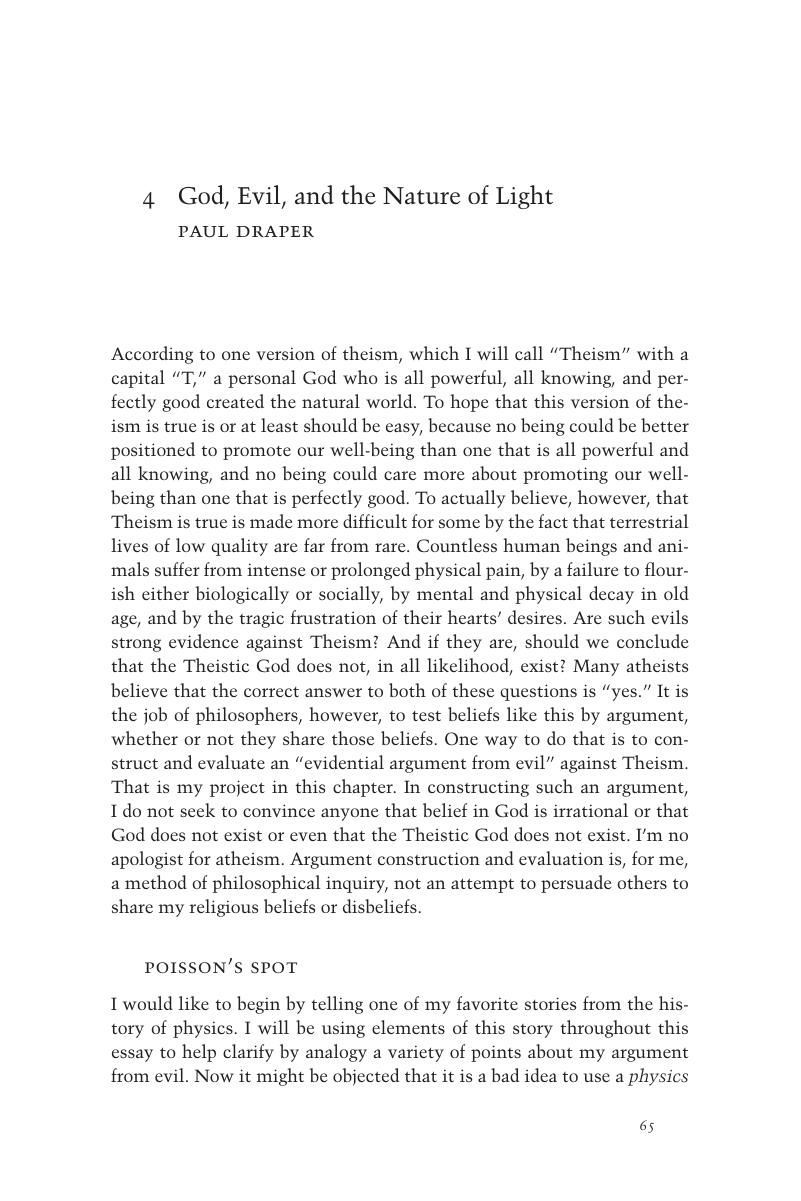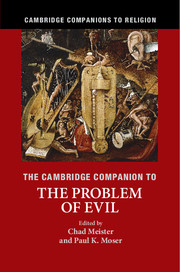Book contents
- The Cambridge Companion to The Problem of Evil
- Cambridge Companions to Religion
- The Cambridge Companion to The Problem of Evil
- Copyright page
- Contents
- Contributors
- Acknowledgments
- Introduction
- Part I Conceptual Issues and Controversies
- 1 Evil and the Meaning of Life
- 2 Beauty and the Problem of Evil
- 3 Logical Arguments from Evil and Free-Will Defences
- 4 God, Evil, and the Nature of Light
- 5 Skeptical Theism
- 6 Evil, Hiddenness, and Atheism
- 7 Anti-Theodicy
- Part II Interdisciplinary Issues
- Index
- Miscellaneous Endmatter
- References
4 - God, Evil, and the Nature of Light
from Part I - Conceptual Issues and Controversies
Published online by Cambridge University Press: 05 July 2017
- The Cambridge Companion to The Problem of Evil
- Cambridge Companions to Religion
- The Cambridge Companion to The Problem of Evil
- Copyright page
- Contents
- Contributors
- Acknowledgments
- Introduction
- Part I Conceptual Issues and Controversies
- 1 Evil and the Meaning of Life
- 2 Beauty and the Problem of Evil
- 3 Logical Arguments from Evil and Free-Will Defences
- 4 God, Evil, and the Nature of Light
- 5 Skeptical Theism
- 6 Evil, Hiddenness, and Atheism
- 7 Anti-Theodicy
- Part II Interdisciplinary Issues
- Index
- Miscellaneous Endmatter
- References
Summary

- Type
- Chapter
- Information
- The Cambridge Companion to the Problem of Evil , pp. 65 - 84Publisher: Cambridge University PressPrint publication year: 2017
References
Further Reading
- 3
- Cited by



